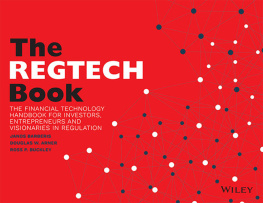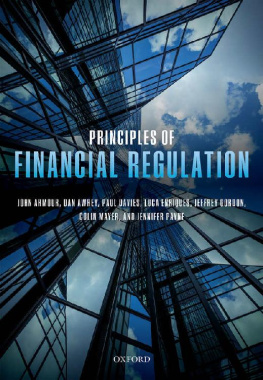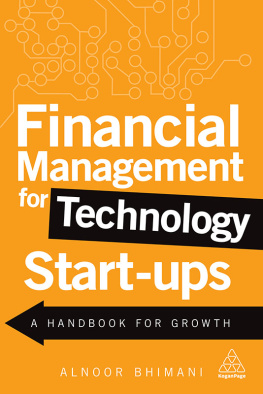
This edition first published 2019
2019 Millennial Ltd
Registered office
John Wiley & Sons Ltd, The Atrium, Southern Gate, Chichester, West Sussex, PO19 8SQ, United Kingdom
For details of our global editorial offices, for customer services, and for information about how to apply for permission to reuse the copyright material in this book, please see our website at www.wiley.com.
All rights reserved. No part of this publication may be reproduced, stored in a retrieval system, or transmitted, in any form or by any means, electronic, mechanical, photocopying, recording, or otherwise, except as permitted by the UK Copyright, Designs and Patents Act 1988, without the prior permission of the publisher.
Wiley publishes in a variety of print and electronic formats and by print-on-demand. Some material included with standard print versions of this book may not be included in e-books or in print-on-demand. If this book refers to media such as a CD or DVD that is not included in the version you purchased, you may download this material at http://booksupport.wiley.com. For more information about Wiley products, visit www.wiley.com.
Designations used by companies to distinguish their products are often claimed as trademarks. All brand names and product names used in this book are trade names, service marks, trademarks, or registered trademarks of their respective owners. The publisher is not associated with any product or vendor mentioned in this book.
Limit of Liability/Disclaimer of Warranty: While the publisher and author have used their best efforts in preparing this book, they make no representations or warranties with respect to the accuracy or completeness of the contents of this book and specifically disclaim any implied warranties of merchantability or fitness for a particular purpose. It is sold on the understanding that the publisher is not engaged in rendering professional services and neither the publisher nor the author shall be liable for damages arising herefrom. If professional advice or other expert assistance is required, the services of a competent professional should be sought.
Library of Congress Cataloging-in-Publication Data
Names: Barberis, Janos, editor. | Arner, Douglas W., editor. | Buckley, Ross P., editor.
Title: The regtech book : the financial technology handbook for investors, entrepreneurs and visionaries in regulation / edited by Janos Barberis, Prof. Douglas W. Arner, Prof. Ross P. Buckley.
Description: Chichester, West Sussex, United Kingdom : John Wiley & Sons, 2018. | Includes index. |
Identifiers: LCCN 2018043123 (print) | LCCN 2018044728 (ebook) | ISBN 9781119362166 (Adobe PDF) | ISBN 9781119362173 (ePub) | ISBN 9781119362142 (hardcover)
Subjects: LCSH: Financial institutionsState supervision. | FinanceTechnological innovations. | Trade regulation.
Classification: LCC HG173 (ebook) | LCC HG173 .R395 2018 (print) | DDC 332.068/1dc23
LC record available at https://lccn.loc.gov/2018043123
A catalogue record for this book is available from the British Library.
ISBN 978-1-119-36214-2 (paperback)ISBN 978-1-119-36216-6 (ePDF)
ISBN 978-1-119-36217-3 (ePub)ISBN 978-1-119-36219-7 (WOL)
10 9 8 7 6 5 4 3 2 1
Cover Design: Wiley
Cover Image: pkproject/Shutterstock
The RegTech Book
The Financial Technology Handbook for Investors, Entrepreneurs and Visionaries in Regulation
Edited by
Janos Barberis
Douglas W. Arner
Ross P. Buckley
A FinTech and RegTech Overview:
Where We Have Come From and Where We Are Going
By Douglas W. Arner1, Ross P. Buckley2 and Janos Barberis3
1Kerry Holdings Professor in Law, Co-Founder, Asian Instituteof International Financial Law, and Faculty Director, LLM in Compliance and Regulation, University of Hong Kong
2KPMG Law King & Wood Mallesons Chair of Innovative Disruption and Law, Scientia Professor, and Member, Centre for Law, Markets and Regulation, UNSW Sydney
3Senior Research Fellow, Asian Institute of International Financial Law, Faculty of Law, University of Hong Kong, and Founder, SuperCharger FinTech Accelerator and FinTech HK
Introduction
In this overview, we seek to set the scene for all that is to come by providing a brief history of FinTech and RegTech, and by giving our particular view on the truly transformative potential of RegTech. In doing so, we draw upon some of our major works in the field.
Regulatory and technological developments are changing the nature of financial markets, services and institutions. Financial technology, or FinTech, refers to the use of technology to deliver financial solutions, and regulatory technology, or RegTech, describes the use of technology in the context of regulatory monitoring, reporting and compliance. We argue that the true potential of RegTech lies in its ability to effect a profound transition from a Know Your Customer (KYC) to a Know Your Data (KYD) approach one underpinned by efficient processes for the collection, formatting and analysis of reported data.
FinTech
The Evolution of FinTech
FinTech is not a new concept. The term FinTech can be traced to the early 1990s,
FinTech 1.0 (18661967)
Finance and technology have had a long history of mutual reinforcement, from early calculation technologies like the abacus, to the emergence of double entry accounting in the late Middle Ages and Renaissance. The late 1600s saw a European financial revolution featuring the rise of joint stock companies, insurance, and banking all based on double entry accounting which was essential to the Industrial Revolution.
In the late 19th century, technologies such as the telegraph helped to forge cross-border financial connections.
FinTech 2.0 (19672008)
The late 1960s and 1970s saw rapid advances in electronic payment systems, including the establishment of the Inter-Bank Computer Bureau in the UK in 1968 and the US Clearing House Interbank Payments System in 1970. Reflecting the need to link domestic payments systems, the Society of Worldwide Interbank Financial Telecommunications (SWIFT) was established in 1973, followed shortly after by the 1974 collapse of Herstatt Bank a crisis which served as the catalyst for the first major regulatory initiative, the establishment of the Basel Committee on Banking Supervision of the Bank for International Settlements in 1975.
1987s Black Monday saw stock markets crash globally; another reminder that global markets were technologically interlinked. However, the emergence of the internet in the 1990s provided the foundational change that made FinTech 3.0 possible.
FinTech 3.0 (2008 present)
A confluence of factors emerged between 2007 to 2008, which provided the impetus for FinTech 3.0 in developed countries. The brand image of banks was severely shaken. A 2015 survey reported that Americans trusted technology firms far more than banks.
The GFC damaged bank profitability and the regulation that ensued drove compliance costs to record highs. The timing of the GFC also played a critical role in FinTechs development. This phase has required high levels of smartphone penetration and sophisticated application programming interfaces (APIs), which would not have existed had the GFC occurred five years earlier.
Next page










